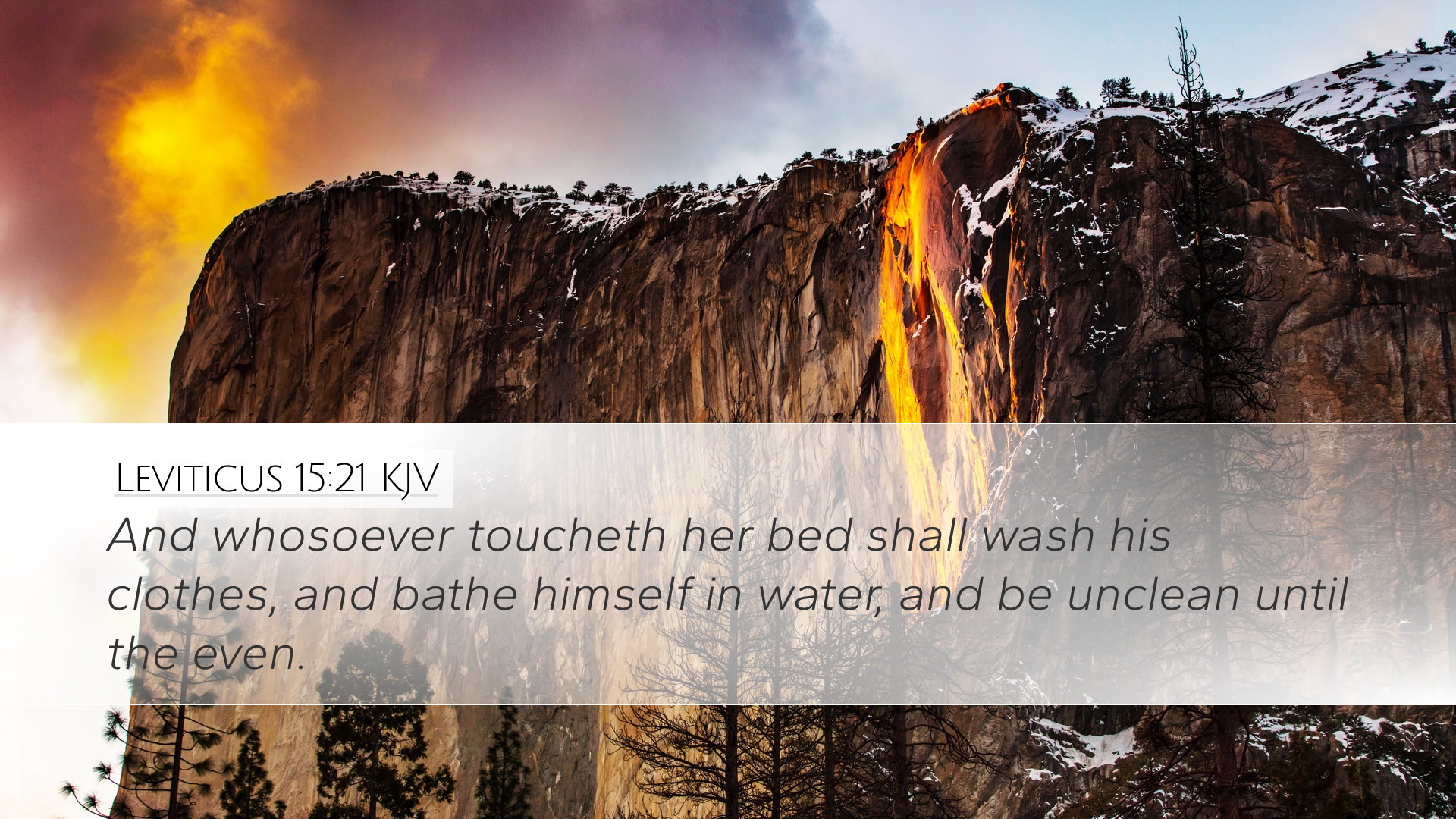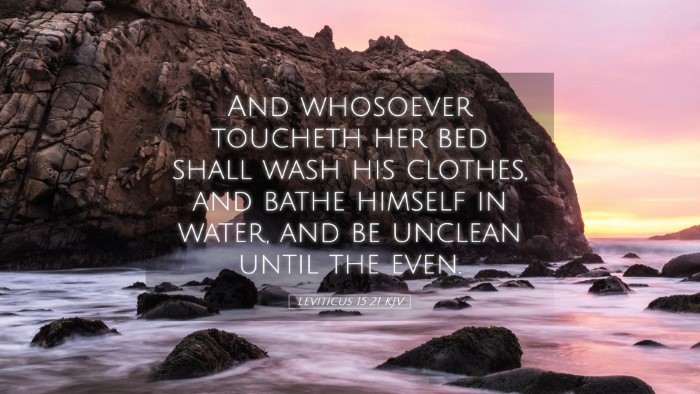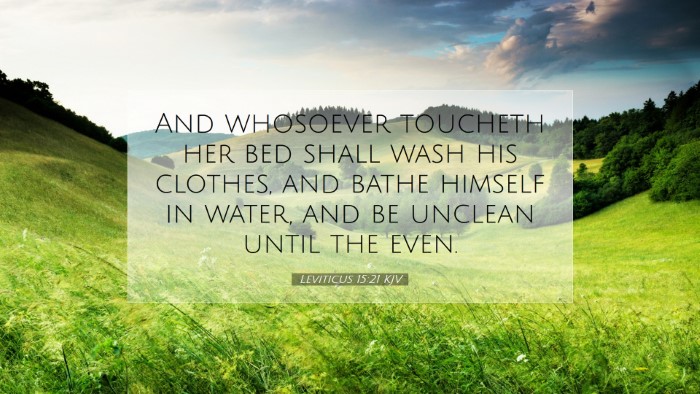Commentary on Leviticus 15:21
Leviticus 15:21 states: “And whosoever toucheth those things shall be unclean until the even.” This verse is situated within a larger discourse on the laws pertaining to bodily discharges and their consequences, providing vital significance in understanding holiness, uncleanness, and the sacredness of community life.
Context and Significance
This chapter details regulations regarding ceremonial cleanliness following bodily discharges—primarily addressing conditions regarded as unclean. As noted in various commentaries, this legislation was encapsulated in the larger theme of maintaining holiness and separation from impurity.
Theological Implications
The detailed laws regarding bodily discharges serve to illustrate a broader theological principle: God's holiness and the necessity of purity among His people. Matthew Henry links these laws to the larger narrative of Israel's covenant relationship with God, emphasizing that purity is essential for worship and fellowship with the Almighty.
Community and Individual Responsibility
Albert Barnes emphasizes that personal uncleanness has communal implications. The warning that anyone who touches the unclean will also be considered unclean until evening underscores the collective responsibility of the community. In ancient Israel, purity regulations impacted communal worship, lifestyle, and interactions among individuals.
Insights from Commentaries
-
Matthew Henry comments on the seriousness of the laws, noting, “The people were instructed to be mindful of the ramifications of their actions and to safeguard not only their purity but that of their community.”
-
Albert Barnes highlights that “the consequences of touching the unclean included exile from the tabernacle and disrupted relationships within the worshipping community, illustrating the serious nature of cleanness before God.”
-
Adam Clarke expands on the significance of ‘even’ in this verse, suggesting that it shows not only a designated time for ritual purification but also an opportunity for reflection on the implications of one's state of holiness or unholiness.
Practice and Application
Pastors, students, and theologians can extract crucial implications for contemporary application. The principles of holiness, community responsibilities, and attentiveness to God’s commands resonate through the ages.
Holiness in Personal Lives
As one considers the implications of Leviticus 15:21, modern believers are reminded of their call to holiness. Just as the Israelites were urged to remain aware of their interactions with the unclean, today’s church must remain vigilant about influences that may compromise spiritual health.
The Role of the Church
The communal aspect of these laws informs church structure and discipline. The understanding that individual actions bear weight on communal purity fosters a culture of accountability and love within congregations.
Conclusion
In summary, Leviticus 15:21, while situated in a historical context, imparts timeless truths about the nature of holiness, the interconnectedness of community life, and the necessity of awareness in maintaining this holiness. The insights shared by Matthew Henry, Albert Barnes, and Adam Clarke provide a rich tapestry of understanding that modern believers and scholars can draw from, fostering a deeper appreciation for the seriousness of God's commands and the nature of our relationship with Him and with one another.


